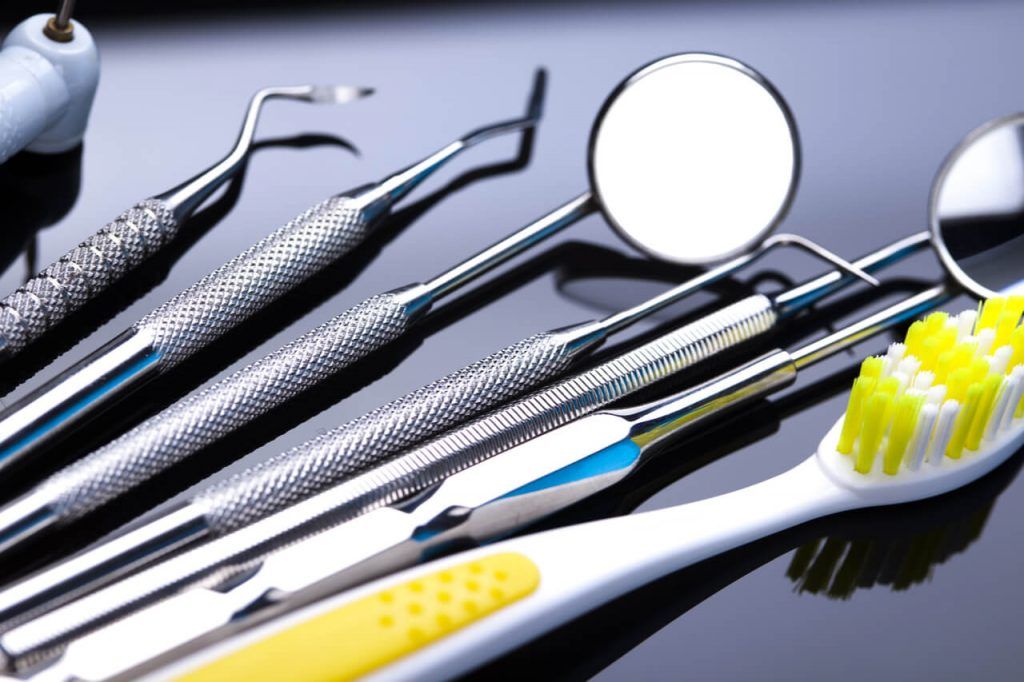What Are Best Dental Cleaning Tools? Expert Picks

Maintaining good oral hygiene is crucial for a healthy smile and overall well-being. Dental cleaning tools are an essential part of this maintenance, helping to remove plaque, bacteria, and food particles that can cause cavities and gum disease. With so many options available, choosing the best dental cleaning tools can be overwhelming. In this article, we will explore the top picks from dental experts, discussing their effectiveness, ease of use, and benefits for different oral health needs.
Introduction to Dental Cleaning Tools
Before diving into the expert picks, it’s essential to understand the different types of dental cleaning tools available. These include:
- Toothbrushes: Manual and electric, designed for daily plaque removal.
- Dental Floss: Used for removing food particles and plaque from between teeth.
- Interdental Brushes: Small brushes for cleaning between teeth and around orthodontic appliances.
- Mouthwashes: Liquid solutions that kill bacteria and freshen breath.
- Water Flossers: Devices that use a stream of water to remove plaque and debris.
Each of these tools serves a specific purpose and can be used in conjunction with one another for comprehensive oral care.
Expert Picks for Dental Cleaning Tools
1. Electric Toothbrushes
Electric toothbrushes are highly recommended by dental experts for their efficiency in removing plaque and improving gum health. Brands like Oral-B and Philips Sonicare offer a range of models with advanced features such as timers, pressure sensors, and different brushing modes. These features help ensure that teeth are brushed thoroughly without causing damage to gums.
2. Dental Floss Picks
For those who struggle with traditional floss, dental floss picks are a convenient and easy-to-use alternative. These small tools have a curved end with a piece of floss, making it simpler to maneuver between teeth, especially in the back of the mouth. Johnson & Johnson and Oral-B offer popular floss pick options.
3. Interdental Brushes
Interdental brushes are crucial for cleaning between teeth and around dental work such as bridges and implants. They come in various sizes to fit different spaces between teeth. Brands like Curaprox and Sensodyne offer interdental brushes that are gentle on gums and effective in plaque removal.
4. Antibacterial Mouthwashes
Mouthwashes can add an extra layer of protection against plaque, gingivitis, and bad breath. Experts recommend looking for mouthwashes that carry the American Dental Association (ADA) Seal of Acceptance, indicating they are safe and effective. Listerine and Colgate PerioGard are popular choices among dental professionals.
5. Water Flossers
Water flossers, or oral irrigators, are especially beneficial for those with orthodontic work, dental implants, or periodontal pockets. They can more effectively remove plaque and debris from these areas than traditional flossing. Waterpik is a leading brand in water flossers, offering models with various tips for different oral care needs.
Benefits and Effectiveness of Dental Cleaning Tools
The effectiveness of dental cleaning tools can vary based on individual oral health needs and how well the tools are used. For instance:
- Electric toothbrushes can remove up to 21% more plaque than manual toothbrushes and are particularly beneficial for those with limited dexterity.
- Dental floss and interdental brushes are essential for preventing interdental cavities and gum disease by removing plaque from areas that toothbrushes cannot reach.
- Mouthwashes can reduce gingivitis and plaque when used as part of a regular oral care routine.
- Water flossers are proven to be more effective than string floss in reducing gingivitis in certain cases.
Choosing the Right Dental Cleaning Tools
Selecting the right dental cleaning tools depends on several factors, including:
- Oral Health Status: Those with gum disease or dental work may require more specialized tools like interdental brushes or water flossers.
- Ease of Use: Electric toothbrushes and floss picks can be easier to use for some individuals.
- Personal Preference: Some may prefer the feeling of a manual toothbrush or the freshness of a particular mouthwash.
Conclusion
Maintaining good oral hygiene requires the right tools and techniques. By understanding the different types of dental cleaning tools available and their benefits, individuals can make informed decisions about their oral care routine. Whether you’re looking to prevent cavities, manage gum disease, or simply maintain a healthy smile, incorporating the expert-recommended dental cleaning tools into your daily routine can make a significant difference.
What is the best electric toothbrush for sensitive teeth?
+For sensitive teeth, look for an electric toothbrush with a gentle mode. The Oral-B Genius Pro 8000 and the Philips Sonicare ProtectiveClean 4100 are highly rated options that offer gentle cleaning modes and are designed to be comfortable for sensitive teeth and gums.
How often should I use a water flosser?
+It’s recommended to use a water flosser at least once a day, preferably before brushing your teeth, to help remove plaque and debris from between your teeth and below the gumline. However, the frequency may vary depending on your oral health needs and as advised by your dentist.
Are interdental brushes suitable for everyone?
+While interdental brushes are highly beneficial, they may not be suitable for everyone, especially those with very tight spaces between their teeth. It’s essential to choose the right size of interdental brush and to use them gently to avoid damaging the gums. Consult with your dentist to determine the best interdental brushes for your specific oral health needs.

